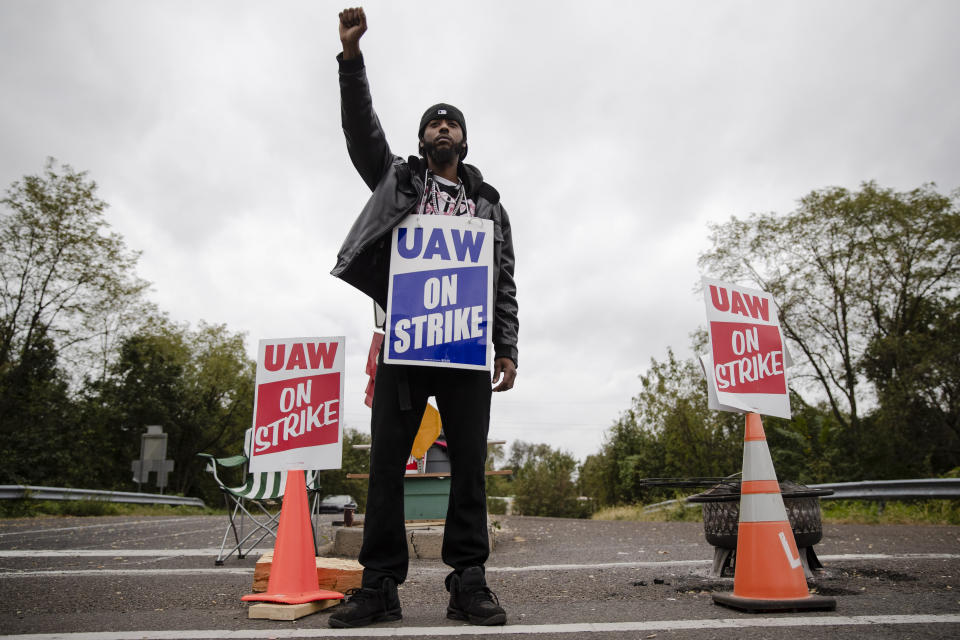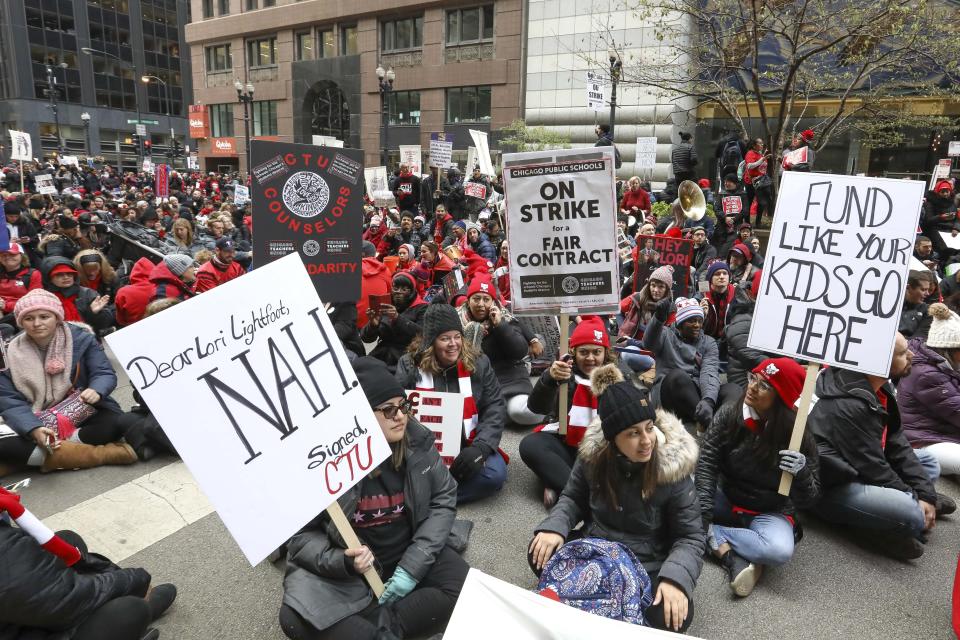Nearly 20% of workers illegally fired for union activity: report
Employers are increasingly preventing employees from forming unions in the workplace, according to a new report from the Economic Policy Institute (EPI), a left-leaning think tank. What’s more, the report finds, many of these efforts are illegal. Employers were found with violating federal law in roughly 42% of all union election campaigns, with 20% involving a charge that a worker was “illegally fired” for union activity. But these numbers only represent elections supervised by the National Labor Relations Board (NLRB).
Christian Sweeney, deputy organizing director of the AFL-CIO, says that in reality, these numbers are likely an underrepresentation. The AFL-CIO is the country’s largest coalition of more than 50 major unions and represents some 12.5 million American workers, from pilots to teachers.
“Even the undercount shows this is a huge problem,” Sweeney said. “The numbers are based on charges filed with the NLRB. But the NLRB doesn’t work that well.”

In addition to firing employees, in nearly a third of all elections, EPI notes, employers were charged with “illegally coercing, threatening, or retaliating against workers for supporting a union.”
Sweeney says none of these tactics are new, pointing to recent news stories about companies like Google, that have been called out for alleged union-busting.
“It’s unfortunate that when you start an organizing campaign,” Sweeney says, “that when people want to start a union that the strategies have to include that the employer will violate the law. It’s disheartening, but not altogether surprising.”
Spending big
Illegal activities aren’t the only union-busting moves employers use.
EPI estimates that each year, employers spend $340 million on consultants to create “union avoidance” strategies and tactics.
“The main goal of union avoidance consulting firms, is to prevent a union election from taking place—and if that fails, to ensure that workers vote against the union,” according to the report.

And if these violations are concerning, the report highlights that anti-union activities are on the rise. Data from the early 2000s indicates that unfair labor practices existed in 30% to 40% of union elections. By 2016-17, that rate had risen to as high as 54%. Illegal firing charges in elections rose from 17% to roughly 20% as shown in this recent study. But tellingly, when surveyed, campaigns reported a much higher rate of firings (from 34% in the early 2000s to nearly 41% in 2016-17), indicating that the problem was underreported.
Sweeney says these violations are on the rise in part due to an increase in union organizing. Though unions have faced declines throughout the years there have been signs of an uptick. In 2018, a total of 485,000 people went on strike — the highest number since 1986.
Since 1979, union representation of workers has dropped by more than half from 27% to under 12% in 2017. Last year, union representation was under 11%, according to the Bureau of Labor Statistics (BLS). The union declines are viewed negatively, according to a Pew Research poll. Just over half of Americans say that the decline in union representation is bad for working people.
A broken system
Though these charges are on the rise, it doesn’t mean that employers are increasingly being penalized for anti-union activity.
“While the NLRA guarantees workers the right to organize and collectively bargain, it in fact fails to provide penalties sufficient to deter employer violations of these protections,” the report notes. “The Act does not include civil penalties or punitive damages.”
“The penalties are virtually nonexistent, and they can also take sometimes months, or even years to resolve,” Sweeney says. “Our system is badly broken. That said, it hasn’t stopped thousands and thousands of workers from organizing.”
Sweeney says that the country badly needs labor reform. But he’s hopeful that it will happen, after a majority of the members of the House signed on to the Protecting the Right to Organize Act (PRO Act).
The law would create penalties for employers that violate workers’ rights, give employees the ability to take their employers to court for violating their NLRB rights, and prevent employers from interfering in union elections.
Kristin Myers is a reporter at Yahoo Finance. Follow her on Twitter.
Read more:
Here’s what happens to a candidate’s money when they drop out
Black Friday protesters hit back with ‘Buy Nothing Day’
Charlamagne tha God addresses black voters considering Trump: 'Who wants to be a rich slave?'
US taxpayers spent almost $1 billion incarcerating innocent black people
Trump campaign raises millions during impeachment hearings
Read the latest financial and business news from Yahoo Finance
Follow Yahoo Finance on Twitter, Facebook, Instagram, Flipboard, LinkedIn, YouTube, and reddit.

 Yahoo Finance
Yahoo Finance 
